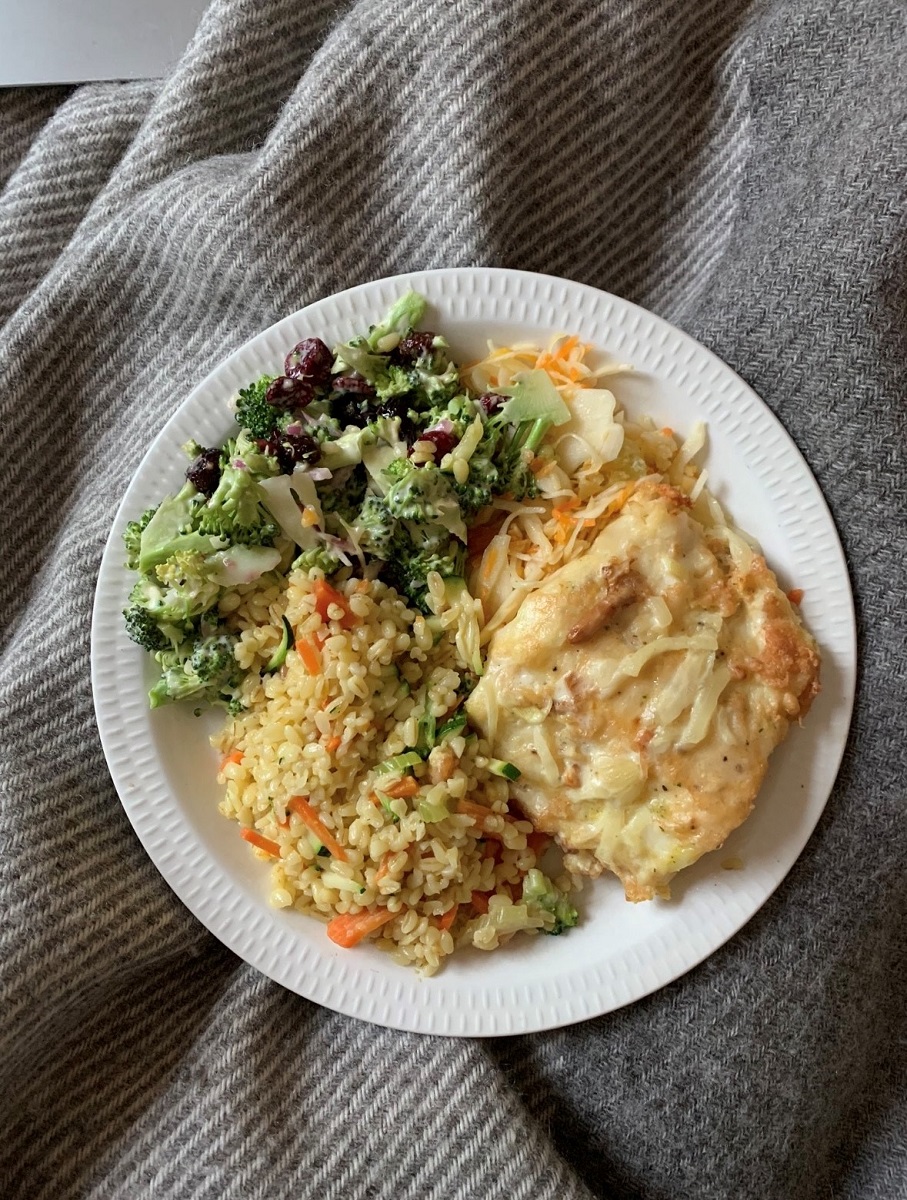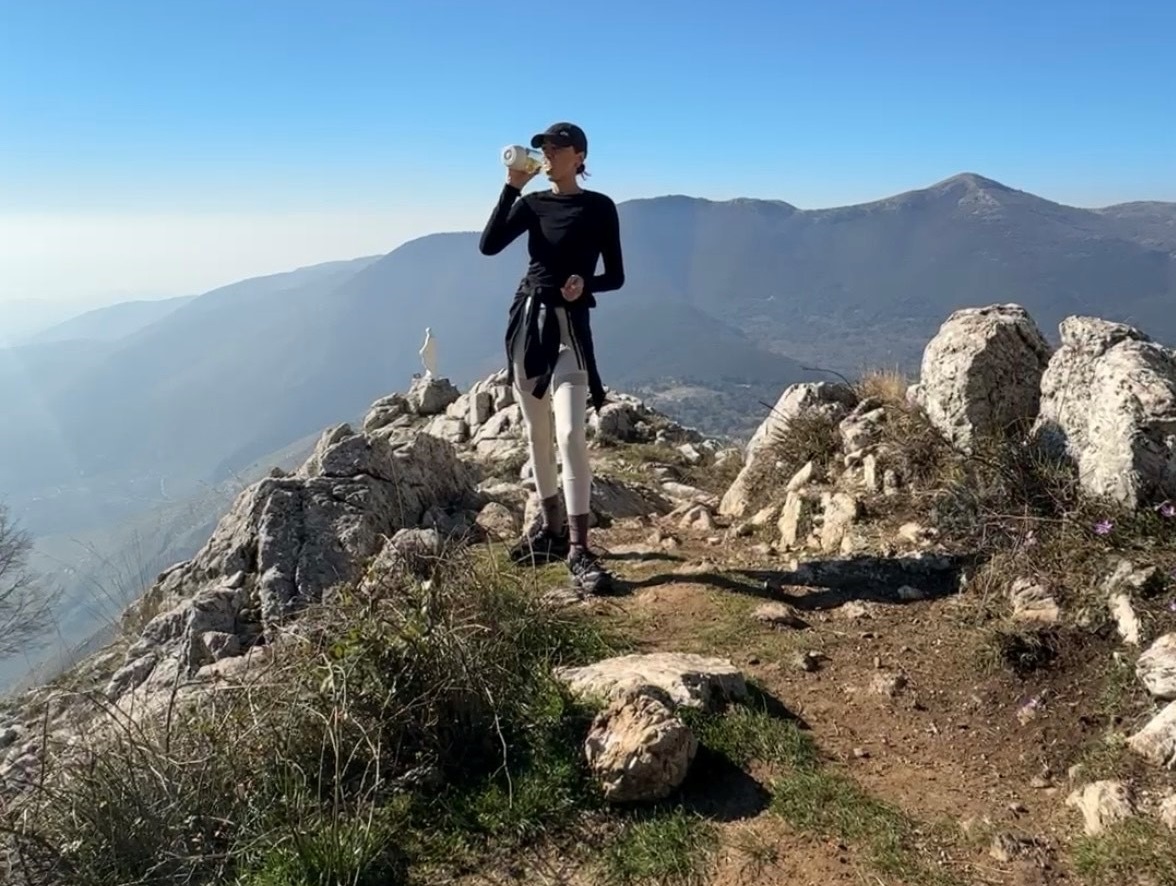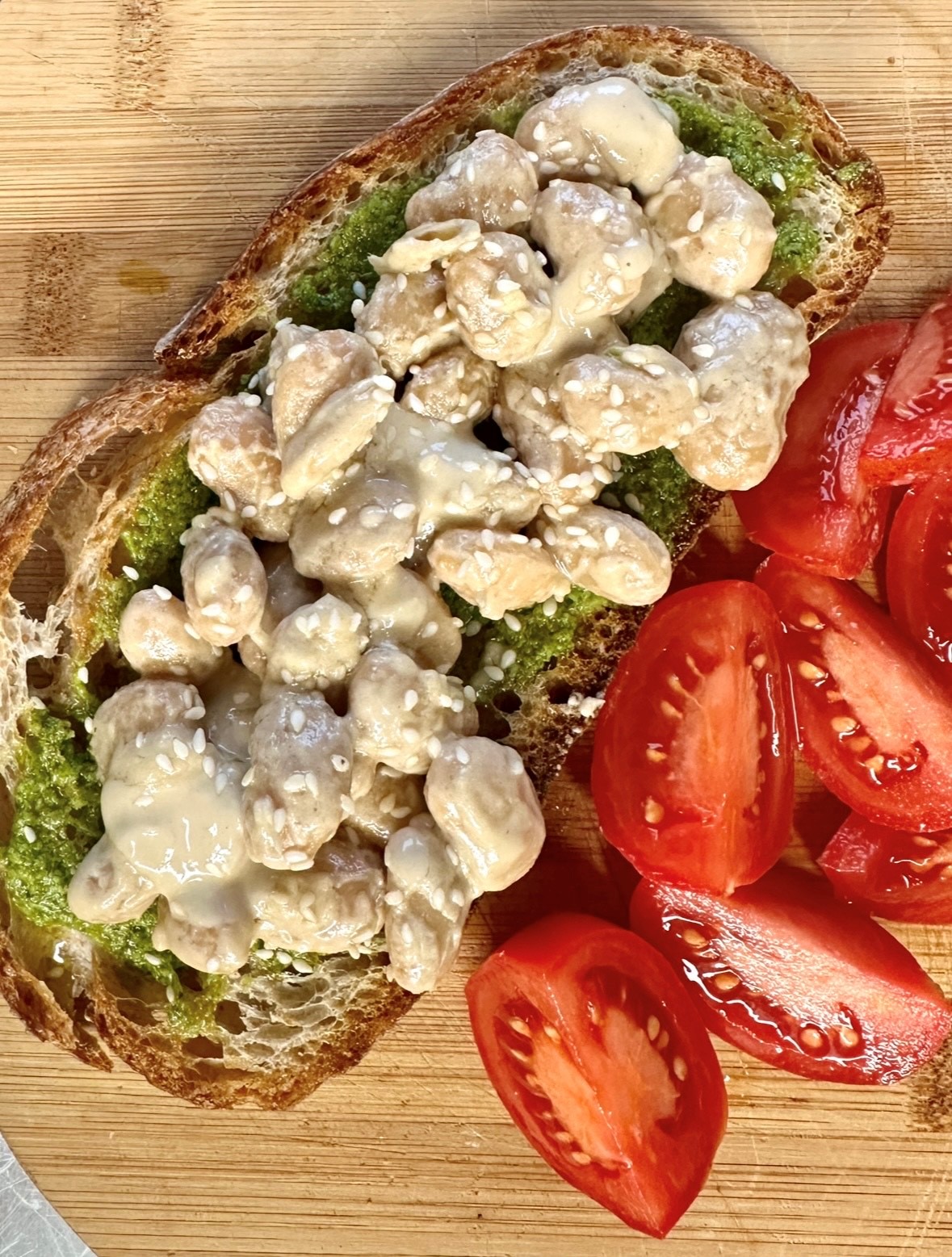Lifestyle Medicine Specialist Shares Tips on Instagram: ‘I’m Happy Where I Am’
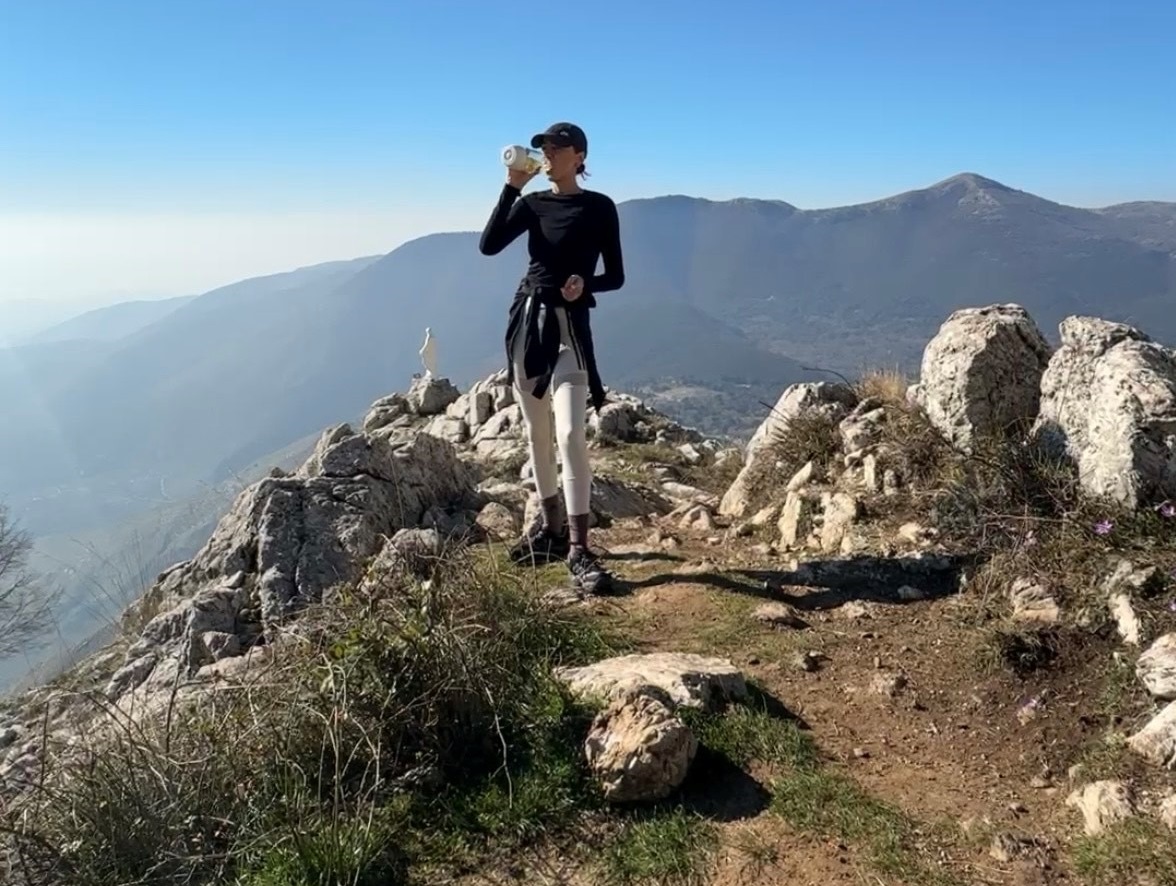
“Health is a value,” states Kotryna Nausėdė, a lifestyle medicine specialist and influencer with over 11,000 followers on Instagram. She brings the knowledge and experience gained at university and through various courses to help people transform their lives and develop daily routines free of chronic diseases, burnout, and disordered eating.
Empowered with knowledge to help others
“We see value as something we actively pursue. I haven’t had a sip of alcohol for many years and I’ve developed an enjoyable exercise schedule, take care of own sleep hygiene and emotional health. I also have a few guidelines when it comes to diet, but there are no strict rules here, as with other aspects of my lifestyle. Rather, there is flexibility and adaptation. This allows a sense of harmony.
That’s why, like any other person, I sometimes eat purely for pleasure, and when I’m feeling a bit lazy, I allow myself a few days without exercising. I would advise those who cannot find a balance not to be too hard on themselves. The best results come when we act out of acceptance and compassion rather than tension, rigidity, and haste. Lifestyle is not a sprint, but a marathon,” says the graduate of the Lifestyle Medicine programme at the Lithuanian University of Health Sciences (LSMU).
Kotryna didn’t enrol in the MSc in Lifestyle Medicine immediately after completing her undergraduate degree. It happened only a few years after she obtained her BSc in Public Health. She used the time between her studies to learn more about herself.
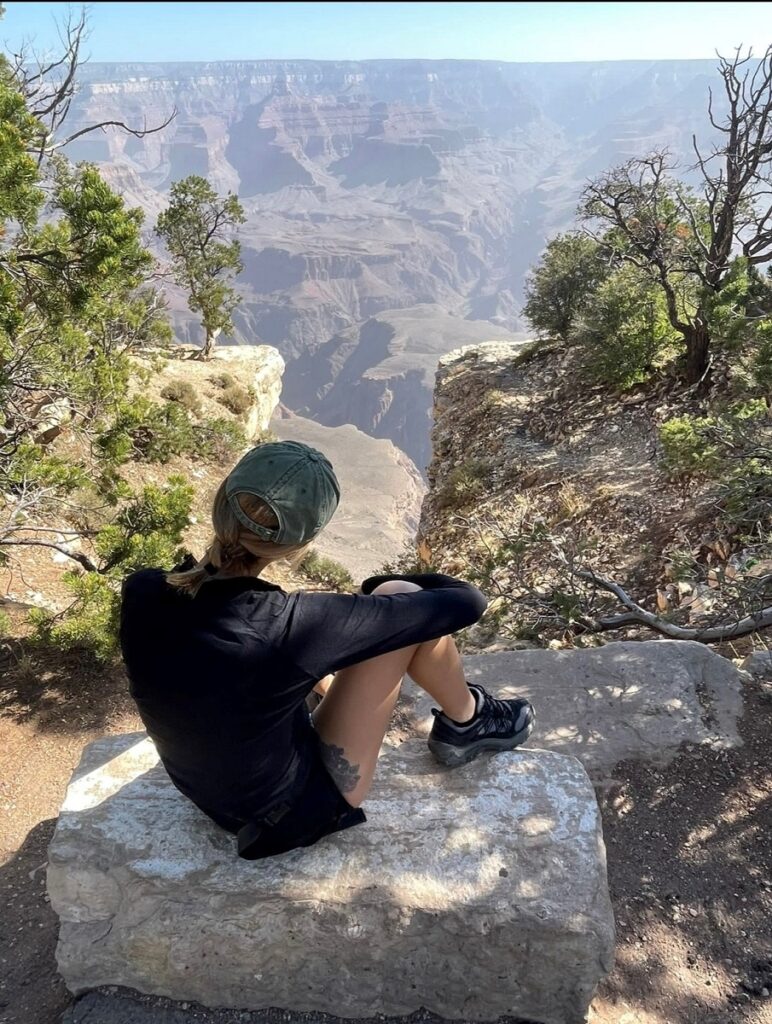
“During the gap years, I travelled, became interested in spirituality, and completed a yoga instructor course. From there, I developed the desire to explore the human being as an indivisible whole – physically, mentally, and spiritually. Driven by a thirst for knowledge that links all these aspects, I came back to Lithuania. Here, I noticed an advertisement for the last available place on the MSc programme in Lifestyle Medicine and decided to give it a try. I felt that the securing a spot was the sign that I had chosen the right path”, she says. The experience she gained during her studies and in various courses encouraged her to begin sharing her knowledge with others. She chose the social network Instagram for this purpose.
“The spiritual and physical practices had undeniable effects that I felt. I wanted to share this with others, especially since Buddhist philosophy and the Hindu religion based on yoga, meditation, and breathing exercises, were not yet popular at that time. As my competences developed, so did the number of topics I covered on Instagram. Very organically, I began to link physical health, food fears, and eating tensions, the damage of dieting on body image and self-acceptance, with tools helping me to be comfortable in any state. In this way, the content I create has increasingly engaged a female audience.”
Unrealistic beauty standards continue to persist
According to Kotryna, women are more inclined to attempt to conform to the standards of appearance dictated by society. “Every day I receive a lot of emails filled with pain, tension, and self-loathing. It makes me realise the damage that the socio-cultural pressure to conform to standards of beauty and the ideal body has done and continues to do. The feedback from women motivates me to take action and to create at least some counterbalance to this pressure”, says the lifestyle medicine specialist.
She says that each client’s story is unique and sensitive in its own way, and that people of all ages, builds, and professions seek help. “I remember one woman, approaching retirement age, who came in because of her increasing weight and fear of food. When asked at what age she started dieting, she said at 13. Then her mother asked her to keep her company with slimming efforts while she was still a teenager. The patient realised that she had never stopped since then. A few months later, it was good to see her discovering the freedom of food and, after so many years of fear, getting to know the pleasure of it.
I still remember a young woman accomplished as a professional in sports training who, because of her body size and shape, had been afraid to fulfil her dream of becoming a sports instructor. A few weeks later, inspired, she not only gave up her habit of weighing herself every day and restricting her food intake, but also set out to make this dream a reality. She is now a successful sports instructor. I meet men at work too. I witness some of them risking not only their families but also their lives in the office, when they dare to make their first call to an addiction centre. These stories, though commonplace, are individually immensely important,” says the specialist.
So many activities to choose from
While many young people dream of becoming doctors and never consider as a lifestyle medicine specialist, Kotryna says it is an increasingly recognised field that offers a wide range of self-fulfilment and financial opportunities. The key is to be motivated and willing to take advantage of them.
“If you’re passionate about something and consistent, your passion will eventually be noticed and appreciated. For me, appreciation has never been solely about the financial return. It’s much more motivating to hear back from my clients, to see the changes in their lives. Perhaps that is a sign that I am on the right path to fulfilment. Today, there aren’t enough lifestyle medicine specialists, there are increasingly more job opportunities available, so employers offer really competitive conditions and are keen to attract specialist and adapt. The specialty is broad and covers many aspects of lifestyle, so you can definitely find your niche. Social media can also be used as a tool”, says Kotryna.
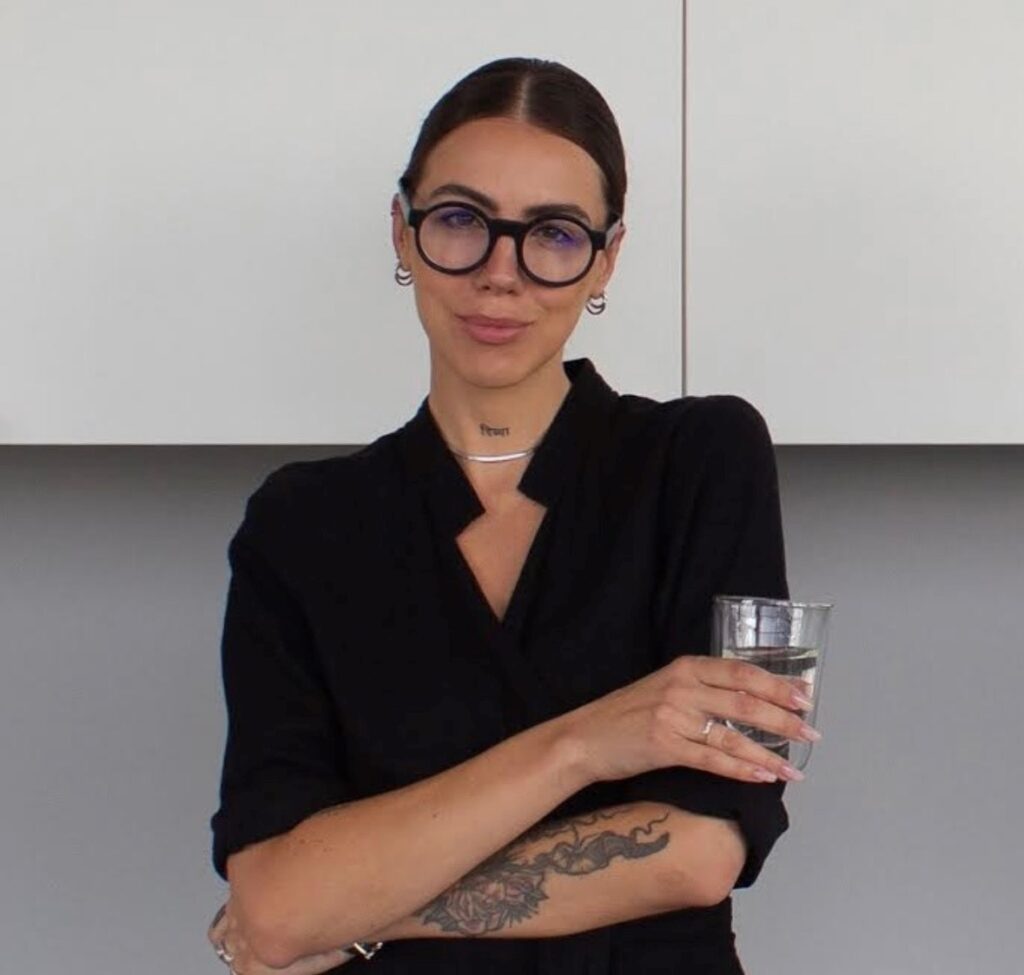
The extensive scope of this field can sometimes present challenges, she says. She has experienced first-hand how setting overly ambitious has left her with insufficient inner resources to meet them.
“After graduating, I worked at two clinics and as an assistant with graduate students in Lifestyle Medicine. Simultaneously, I was also becoming increasingly active on Instagram. Because I was passionate about what I was doing, I started to do well, and I received various other offers that were becoming increasingly difficult to refuse. My aim was to help patients to find their own way in life, but I began to feel that my own life was becoming overly challenging.
Working at the expense of personal life and experiencing empathy fatigue among health professionals have prompted me to reduce my time spent on counselling and dedicate more time to creative activities. Now that I can devote time to my other goal, writing a book about the challenges on the path towards comprehensive well-being, life has definitely become much more balanced. Of course, it was not an easy decision to make, but it was backed by the experience I had gained during my clinical career, the faith I have in myself as a professional, and the trust I have earned from patients, clients, and my audience on social media. I am happy to be where I am now.”


